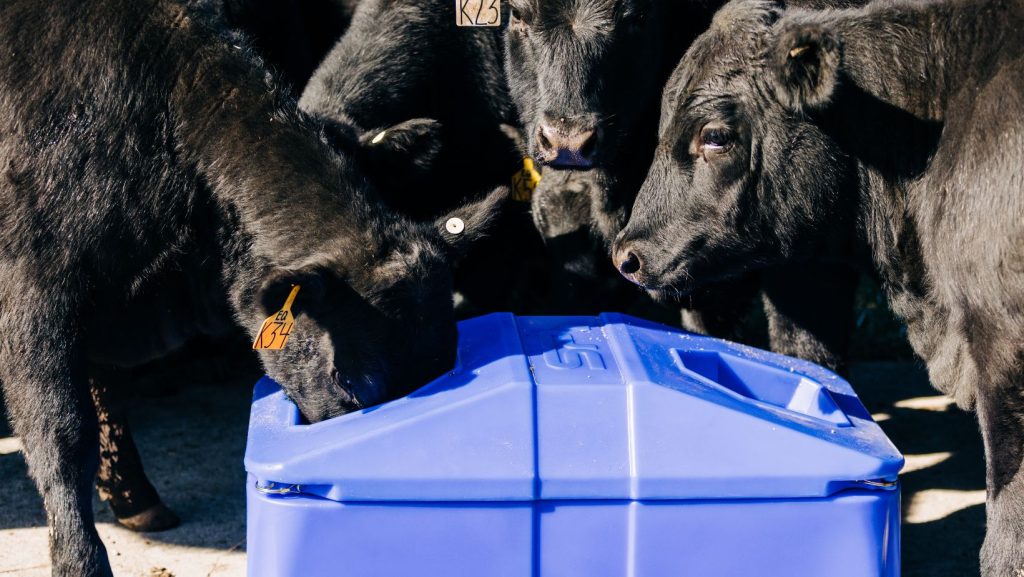
The health and productivity of your livestock are directly tied to the quality of water they consume. Clean water is not just a necessity; it’s a critical component in ensuring your animals remain healthy, hydrated, and productive. Unfortunately, common water contamination issues such as algae, bacteria, and debris can pose significant threats. This guide will share five practical tips for keeping your livestock’s water clean and safe.
The Importance of Clean Water for Livestock Health
Water is essential for all bodily functions, from digestion to temperature regulation. Livestock that consume contaminated water are more susceptible to diseases and reduced productivity. Poor water quality can lead to decreased milk production in dairy cows, lower weight gain in beef cattle, and overall poor health in animals. Ensuring that your livestock have access to clean, fresh water is a foundational aspect of effective farm management.
Common Water Contamination Issues
Water for livestock can become contaminated by various sources. Algae, bacteria, and debris like leaves and dirt are common problems. Algae growth can clog water lines and create an unpalatable water source, while bacteria can lead to serious health issues. Debris can not only dirty the water but also become breeding grounds for other contaminants. Addressing these issues proactively is key to maintaining water quality.
Tip 1: Regular Cleaning and Disinfection
Consistency in cleaning your water storage and delivery systems is vital. Establish a regular schedule to clean and disinfect water troughs, tanks, and pipes. Scrubbing the inside surfaces and using a high-pressure hose can remove most debris and algae.
Disinfection should follow cleaning. Use approved disinfectants, ensuring you follow the manufacturer’s instructions for dilution and contact time. Safety precautions are crucial; always wear gloves and eye protection, and thoroughly rinse all equipment to prevent chemical residues from harming your livestock.
Tip 2: Proper Water Source and Storage
Starting with a clean water source is non-negotiable. Whether it’s a well, river, or municipal supply, ensure the water source is free from contaminants. Protect your water storage tanks by placing them in shaded areas and covering them to keep out debris and animals.
Regular water quality testing is essential. Test for common contaminants such as coliform bacteria, nitrates, and pH levels. Knowing the quality of your source water helps you address potential issues before they affect your livestock.
Tip 3: Shade and Protection
Providing shade for your water sources has multiple benefits. Shaded water stays cooler, which is more palatable for livestock and reduces algae growth. You can use natural shade like trees or install shading structures over water troughs and tanks.
Protecting water from debris and animals is equally important. Use covers or fencing around water sources to keep out leaves, dirt, and wildlife. This simple step can drastically reduce the amount of cleaning needed and maintain the quality of the water.
Tip 4: Invest in an Automatic Livestock Waterer
Automatic livestock waterers are a game-changer when it comes to maintaining water cleanliness. These devices ensure a constant supply of fresh water, reducing the likelihood of contamination. They are particularly useful for larger operations where manual water management is impractical.
SPI Plastic has electric, energy-free, and XL Series automatic livestock waterers, which all have an insulated base so they can be used in all climates. The insulated base prevents the water from freezing, ensuring your animals have access to clean water at all times. The water is controlled by a float-operated valve, minimizing water waste and algae growth.
Tip 5: Monitor Water Consumption and Behaviour
Close monitoring of your livestock’s water consumption and behaviour can provide early warnings of water quality issues. Reduced water intake or changes in drinking behaviour can indicate problems.
Address issues promptly to prevent health complications. If you notice any unusual behaviour, inspect the water source and carry out necessary cleanings or repairs. Preventive measures, such as regular inspections and maintenance, can save you time and resources in the long run.
Conclusion
Ensuring clean water for your livestock is a straightforward yet impactful practice that can enhance their health and productivity. By implementing these tips, you will improve the well-being of your animals and also contribute to the overall success of your farming operations. And if you’re looking for reliable solutions to keep your livestock’s water clean, consider exploring SPI’s range of automatic livestock waterers. Contact us today and our experts are ready to help you find the perfect fit for your farm.